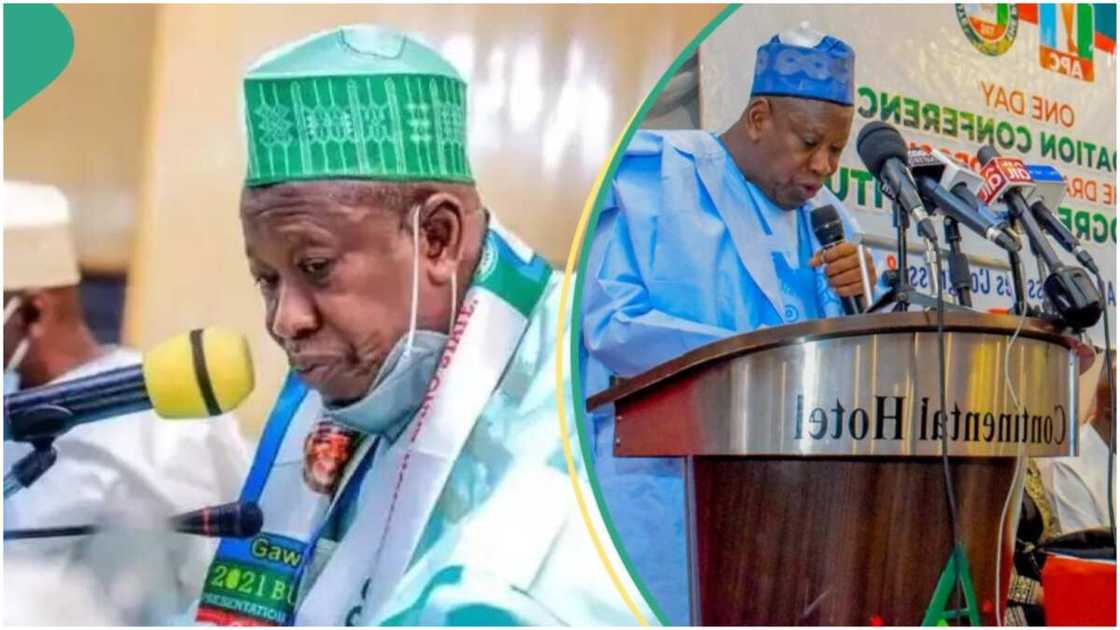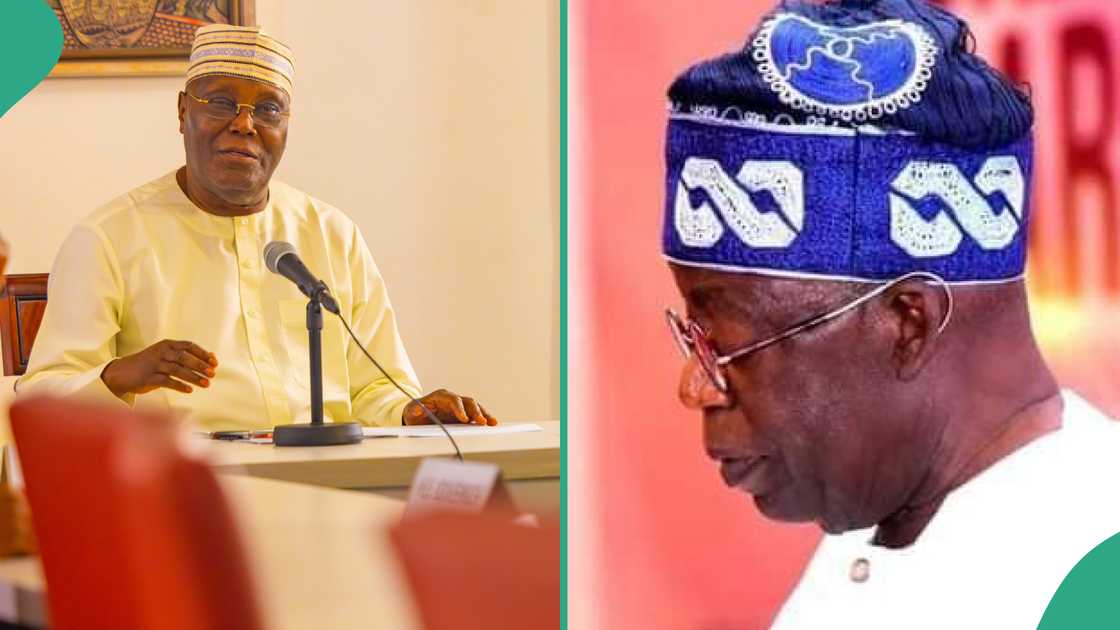In the build-up to the 2027 general elections, discussions about political alliances and the future direction of Nigeria’s leadership are intensifying. Malam Umar Idris Shuaibu, a close associate and an unwavering supporter of Abdullahi Ganduje—former Kano State governor and ex-National Chairman of the All Progressives Congress (APC)—has shared his perspective on what voters, particularly in the North and Kano State, are likely to do at the polls. Shuaibu believes there will be overwhelming support for President Bola Tinubu, emphasizing the strength of Tinubu’s relationship with the northern political class and the strategic influence of Ganduje in the region.
Shuaibu claims that the North’s expected massive support for Tinubu in the 2027 elections is “a repayment of goodwill,” founded upon years of political collaboration, trusted alliances, and a mutual pursuit of regional stability. He stressed that Tinubu’s longstanding rapport with key northern leaders, along with Ganduje’s humble and inclusive political style, are critical factors that will shape electoral outcomes in the coming years.
What Drives the North’s Support for Tinubu?
According to reporting by The Punch, Shuaibu highlighted that President Tinubu’s focus on reconciliation and bridge-building within the APC has played a significant role in unifying the party and consolidating its position in the North-West and beyond. He credited this approach for fostering a sense of togetherness that has helped strengthen Tinubu’s presence across northern Nigeria.
Further, Shuaibu recognized Tinubu’s active engagement with northern political stakeholders as a key reason why many voters in the region may choose to support him once again. He said, “The President has always stood by the North, and when the time comes, this loyalty will not go unnoticed.”
He also pointed out the continued impact of Ganduje’s influence, particularly in Kano State and neighboring areas. Shuaibu credited Ganduje’s leadership style—characterized by negotiation and consensus-building, popularly referred to as the “NOWAHALAZONE” approach—as one of the foundations of the APC’s enduring strength and popularity in the region. Even after Ganduje’s exit from his official APC post, his political footprint reportedly remains robust.
Political Maneuvering: Atiku’s Bid for 2027
The speculation over the North’s voting patterns comes amidst broader shifts within Nigeria’s political landscape. As preparations for the 2027 presidential election commence, major figures such as former Vice President Atiku Abubakar are actively strategizing to challenge the current administration. Alliances are forming and dissolving, with various opposition leaders seeking to unify under a common banner in a bid to unseat Tinubu.
Atiku, who led the opposition charge after his defeat in the 2023 presidential elections, continues to call on rivals to close ranks and present a united challenge to the ruling APC. He has repeatedly argued that a single, collective opposition ticket is the only viable path to ‘sack’ the incumbent from office in 2027. In these efforts, Atiku has presented himself as the ideal flagbearer for any grand coalition and has continued to build support across various northern communities, even as some coalition partners, such as Labour Party’s Peter Obi, reportedly explore other strategies.
Indeed, the northern region has historically played a decisive role in Nigeria’s presidential elections. According to analysts like Professor Bala Idris of the Department of Political Science at Ahmadu Bello University, “Political loyalties in the North can shift quickly, especially in response to changing alliances among traditional powerbrokers and new political actors.” He notes that the region’s final voting behaviour will depend heavily on party outreach, policy proposals, and perceived respect and inclusiveness from candidates.

Source: Twitter
Current Events Stir Additional Intrigue in Kano
Recent developments have further fuelled debates about Kano’s political direction. In a highly publicized visit, Olayemi Cardoso—the current governor of the Central Bank of Nigeria (CBN) and a key appointee of President Tinubu—paid a private visit to the Emir of Kano, Muhammadu Sanusi II, at his residence in Lagos. This visitation is viewed by some commentators as a significant gesture, suggesting an ongoing effort to strengthen ties between Tinubu’s camp and influential traditional rulers in the North.
Cardoso’s meeting with Emir Sanusi was particularly noteworthy due to recent speculation in the media about potential discord between President Tinubu and the Emir. While officials have downplayed such reports, analysts say these kinds of direct engagements reinforce the image of a government actively working to foster unity in a region where traditional and political powers frequently intersect.
Regional and Global Implications
Kano State and the broader North have long held immense sway in Nigeria’s elections due to their demographic strength and influence in national decision-making. Political experts argue that how Kano and other northern states vote can shape not just the presidency, but also national policy priorities, security strategies, and economic development programs. According to the National Bureau of Statistics, Kano is one of Nigeria’s most populous states and a commercial hub, making it vital ground in any presidential race.
Comparatively, similar scenarios play out in neighbouring West African countries, where regional voting blocks often determine electoral outcomes. For instance, Ghana’s “swing regions” are closely watched during elections and, much like Nigeria’s North, can tip the balance of power. Political scientist Dr. Kwabena Mensah from the University of Ghana explained, “Understanding local dynamics, including loyalty to political godfathers and community leaders, is crucial in predicting election trends across West Africa.”
Challenges and Counterpoints
While supporters like Shuaibu champion the idea of northern bloc voting for Tinubu, some citizens and analysts remain cautious. Voter sentiment is subject to rapid change, especially given Nigeria’s ongoing economic challenges, rising unemployment, and concerns about insecurity. Public opinion surveys by NOI Polls and other institutions suggest that many voters remain undecided or are open to fresh options if bread-and-butter issues are not addressed effectively.
According to Zainab Abdullahi, a grassroots activist in Kano, “People here care about respect from Abuja, but they also care about jobs, education, and security. If those don’t improve before the next elections, it may be difficult for any candidate to take popular support for granted.” Such perspectives underscore the importance of not only political alliances but also actual progress on the ground.
Looking Ahead to 2027
With political realignment underway and high-profile visits making headlines, the race for 2027 is already taking shape. Both supporters and critics of the current administration agree that the coming years will test the strength of political networks, the resonance of campaign promises, and the ability of political actors to meaningfully address the needs of ordinary Nigerians.
As the nation gears up for another election season, all eyes remain on Kano and the North. Will the ties nurtured by leaders like Tinubu and Ganduje secure the region’s votes, or will shifting alliances and public concerns steer voters in a new direction?
What do you think? Can President Tinubu and the APC maintain their stronghold in Kano and the wider North, or will opposition leaders like Atiku Abubakar rally enough support to shift the landscape? Share your thoughts in the comments, and stay tuned for more analysis.










